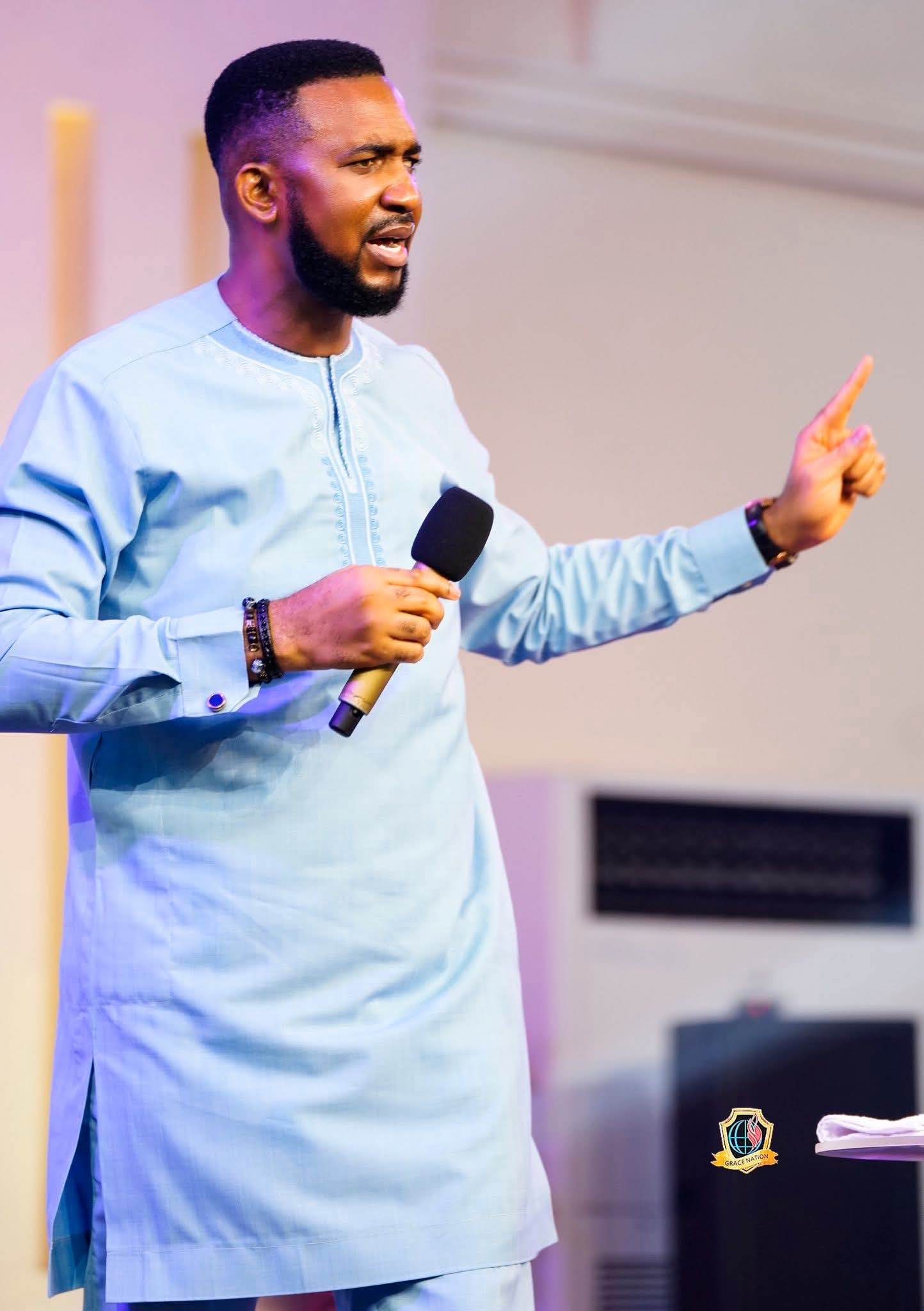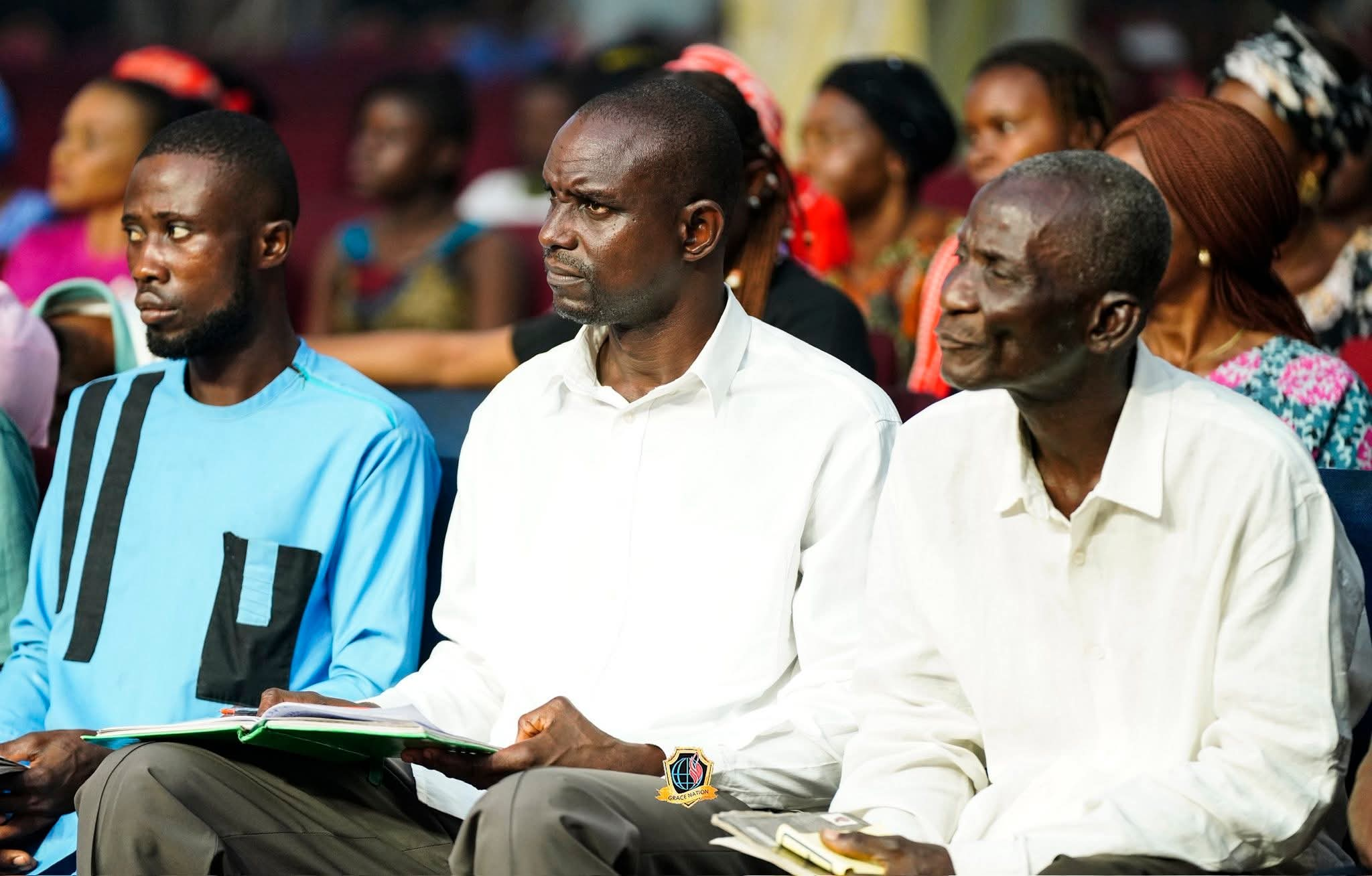celebrity radar - gossips
A Tale Of Two Sundays By Bisi Fayemi

Sunday June 22nd 2014, I woke up at 7am. I had gone to bed at 3am but did not drift off to sleep till 5am. It was no surprise that I had a dull ache in my head. JKF was already up and getting dressed. I picked up my phone and saw the large number of missed calls and text messages. I put the phone down and called for my morning coffee. I was told that visitors were waiting to see us. I nodded my head but made no move to leave the bedroom. I looked at my phone again and saw that I had just missed a call from Erelu Angela Adebayo, the wife of Otunba Niyi Adebayo, former Governor of Ekiti State, who is one of our political leaders and mentors. If anyone knew exactly how I was feeling that morning, it would be Erelu Adebayo, because her husband also lost his second term bid in 2003.
Saturday June 21st 2014 was a very bad day, one of those days that I referred to recently as Ojo buruku esu bu omi mu -The day the devil came to drink water’. That day, my husband lost his re-election bid. Even though we knew there where disgruntled interest groups and some political associates had left to join another party hereby splitting some of our votes, we did not see a loss coming. JKF worked hard during his first term in office and his administration had a lot to show for it. When he ran for re-election in 2014, he ran on the basis of what he had accomplished and the promise of continuing all the great initiatives that had been started. Even the worst critics of his administration admitted that he accomplished a great deal. However, there was a disturbing narrative that no amount of logic could dislodge. JKF was described as ‘too academic, aloof, stubborn, disconnected, stingy’ and so on. He was not the kind of political leader favoured in our environment. The June 2014 election was like a war in Ekiti State. The election was heavily militarized and many of our party officials were arrested or hounded out of town before the election to prevent them from leading party members to the polls. Through a combination of the role played by the heavy-handed security agencies, the intimidation of voters, and the shady activities of some of the officials at the electoral management body, the Independent Electoral Commission (INEC), there was a perfect storm that cost us the election.
That Sunday June 22nd, Erelu Angela who I call ‘Big Sis’, comforted me and as I listened to her kind words I started to cry. I told her that there were a number of visitors out in the living room and I did not want to go out and face them because I did not know what to say to them. She told me to go out and raise their spirits with a song. And that is exactly what I did. I showered, dressed up and walked into the living room looking smart and all smiles, singing a popular Yoruba Christian song, ‘Awa ju asegun lo’ – We are more than conquerors. When the visitors saw that I was not downcast or looking miserable, they attempted to hide their own misery and the atmosphere of gloom improved a bit. As I tried to comfort the women who had come to visit on Sunday June 22nd 2014, I said to them, ‘Our assignment in Ekiti is over. We would have liked to spend 8 years, but now God has told us that we are done for now. He will show us the way. Take heart, God knows best. We have carried out our assignment to the best of our ability. We have a lot to be thankful for. We will not mourn’. I knew I needed to be strong for my husband’s sake, so even if my heart was broken, my spirit was not.
Throughout the day visitors trooped in, and even though I knew they were coming to show solidarity, I did not like the fact that some of them would burst into tears the moment they set eyes on me. The visits continued throughout Sunday and Monday. By Tuesday I could not bear the thought of more delegations coming to ‘mourn’ with us, so I left Ekiti for Ghana and switched off my phone. While I was away, the creepy spokesman for the other side spread a story on social media that I had collapsed and was in hospital. When my friends could not reach me, they panicked. It was a terrible time.
I have alluded to some of the things that transpired after JKF lost the Ekiti election in 2014. Losing an election was not the end of the world as far as I was concerned. What came after was more devastating. People often say failure is an orphan. No, failure is not an orphan, failure is a bastard. People take pity on orphans and offer help and have a sense of obligation towards them. No one pities a bastard, the usual treatment is scorn, derision and ridicule. Trusted friends and colleagues decided to dissociate themselves from us and seek political fortunes elsewhere. That in itself was not a bad thing, but the lies, distortions, character assassination and revisions of history were almost unbearable. The message from all this was clear. JKF was now irrelevant, finished, a persona non grata. Or so they thought. Shortly after, JKF chaired an excellent party convention in December 2014 that produced the Presidential Candidate for the All Progressives Congress (APC), he played a key role in the 2015 Presidential Campaign, and he served as a Federal Minister. Not bad for a persona non grata.
Sunday July 15th 2018, I went to bed at 4am and fell asleep at 6am. I was too excited to sleep, but I knew the next day would be a very long one. By 8am our country home was full of guests, including three Governors and their entourages. Everyone was smiling broadly and there was a lot of hugging and back-slapping. By the time JKF was officially declared the Governor-Elect of Ekiti State by the Independent Electoral Commission that morning, there were at least 2,000 people in our compound and the field right beside the house.
There was a wonderful celebration, and as we all sang and danced, the lessons were not lost on anyone. No one knows tomorrow. We don’t know what a new dawn brings, so we should be mindful of our words and actions. Every community has their own version of the story about the pauper who became a prince and the Prince who became a frog. There can be no contestation for power without subversion or disruption. However, it does not mean we have to lose our humanity. When mere mortals forget that they were created by a superior being, they get very forceful reminders. Last week, there was a lot of drama involving the current leadership of Ekiti State which has inspired a range of hilarious memes and videos. They all had the same theme – ‘How are the mighty fallen’. Even if some of us are bad at Arithmetic, we all know 1+1=2. And even if we have never been to a farm, we should know that you can’t plant cassava and harvest yams.
Two Sundays. Two major events in my life. Two totally different outcomes. How do I feel? There are not enough words to describe how I feel, but let me throw out a few -thankful, relieved, grateful, tired, excited, vindicated, forgiving and hopeful. I give thanks to God Almighty for his mercy and favour. I would like to thank all those who provided financial, material, technical, moral and spiritual support. I wish our political space was not as toxic and chaotic as it is now. This needs to change. Meanwhile, let me now take a break and sleep well for the first time in a long time. Tell yourself, ‘I am more than a conqueror because I have faith’.
Have a great week.
Bisi Adeleye-Fayemi is a Gender Specialist, Social Entrepreneur and Writer. She is the Founder of Abovewhispers.com, an online community for women. She can be reached at [email protected]
celebrity radar - gossips
E‑Money’s Grand Gesture: A Closer Look at the SUV Gift to Chinedu “Aki” Ikedieze

E‑Money’s Grand Gesture: A Closer Look at the SUV Gift to Chinedu “Aki” Ikedieze
By George Omagbemi Sylvester | Published by SaharaWeeklyNG
“Public Generosity, Celebrity Loyalty and the Symbolism of Wealth in Nigeria’s Entertainment Elite.”
On Tuesday, February 17, 2026, Nigerian billionaire and entrepreneur Emeka Okonkwo, widely known as E‑Money, once again captured national attention with a lavish and highly publicised act of generosity, gifting a brand‑new 2024/2025 Ford SUV to veteran Nollywood actor Chinedu Ikedieze, affectionately called Aki, during his high‑profile birthday celebration.
The event, held in Lagos amidst a constellation of entertainers, business figures and socialites, was itself part of an annual tradition in which E‑Money marks his birthday (on February 18) with large‑scale giveaways and spectacular shows of material philanthropy. This year, he announced the gift of over 30 cars to friends, staff and family, a gesture that quickly went viral as videos and images circulated across social media platforms.
In the case of Ikedieze, E‑Money’s gift appeared to be deeply personal. During the festivities, E‑Money stood beside his elder brother, Grammy‑nominated musician KCee and recounted how Ikedieze stood by him at his 2007 wedding. The billionaire explained that the SUV was a “token of appreciation” for the enduring support the actor had shown over the years which is a narrative that blends friendship with public celebration.
Ikedieze, a Nollywood staple with a career spanning more than two decades and over 150 film credits, including the iconic Aki na Ukwa franchise, visibly reacted with humble surprise as he received the vehicle, bowing his head in respect and gratitude. The actor later shared the moment on his Instagram account with a caption celebrating the gift, further fuelling online engagement around the event.
Beyond the spectacle, this incident underscores evolving dynamics in Nigerian celebrity culture and the intersection of wealth, influence and reciprocity. Sociologist Dr. Chinedum Uche of the University of Lagos, speaking on the broader implications of such high‑profile gifts, notes: “Philanthropy that is highly publicised can reinforce social bonds, but it also reflects a culture where generosity is intertwined with reputation economy; where giving becomes as much a social signal as it is an act of kindness.” The quote highlights how public acts of wealth transfer among elites serve layered social functions that extend beyond pure altruism.
Critics of such displays argue that ostentatious giveaways, particularly in a country with stark economic disparities, risk amplifying social envy and exacerbating perceptions of inequality. Economist Dr. Ifunanya Nwosu from the Lagos Business School observes: “In societies marked by economic stratification, celebrity largesse may inspire admiration, but it can also inadvertently highlight structural inequities; prompting questions about systemic investment in public welfare versus individual generosity.”
Still, supporters maintain that E‑Money’s annual tradition (which has in past years included cash gifts to his brother KCee, comedians and even domestic staff) reflects genuine gratitude and a commitment to uplifting his immediate circle, albeit within the private sphere.
For Ikedieze, the SUV stands both as a heartfelt gesture from a longtime friend and a public affirmation of their enduring relationship. As the video of the moment continues to circulate, the broader narrative has ignited discussions about the role of private wealth in public life, celebrity culture and how acts of giving are interpreted in contemporary Nigerian society.
In a landscape where influence and generosity often play out in equal measure on public stages, E‑Money’s gift to Aki is more than a headline, it is a flashpoint in ongoing debates about wealth, friendship and visibility in Nigeria’s entertainment and entrepreneurial ecosystem.
celebrity radar - gossips
Spiritual Reality: Wicked People Are Possessed by Wicked Spirits — Dr. Christian Okafor

Spiritual Reality: Wicked People Are
Possessed by Wicked Spirits — Dr. Christian Okafor
…..“You don’t need to offend them before they attack you.”
…..“Your only true help comes from God.”
Demons are strategic and calculating. They detect threats quickly and position themselves to resist any power that may expose or overpower them.
According to the Generational Prophet and Senior Pastor of Grace Nation Global, Christian Okafor, spiritual intelligence operates both in light and in darkness—and believers must understand this reality.
Dr. Okafor delivered this message on Thursday, February 19, 2026, during the midweek Prophetic, Healing, Deliverance and Solutions Service (PHDS) held at the international headquarters of Grace Nation Worldwide in Ojodu Berger, Lagos, Nigeria.
The Operations of Demons
Teaching on the subject “Spiritual Reality” with the subtitle “Operations of Demons,” the Man of God explained that when demons possess individuals, their behavior changes. Such people may attack, bully, or resist those sent by God to help them, unknowingly rejecting divine assistance and prolonging their struggles.
“You don’t need to offend a demon before it attacks you,” he said. “What you carry is enough to provoke opposition. The greater your potential, the greater the battle.”
Dr. Okafor noted that many believers misinterpret battles as signs that God has abandoned them. However, he explained that some battles are permitted for growth, training, and divine glorification.
According to him, God may allow certain confrontations so that believers understand spiritual warfare and emerge stronger.
“Some battles are necessary,” he emphasized. “They push you into your turning point.”
He further stated that God does not respond to lies, blackmail, or bullying. He responds to His Word. Therefore, opposition is not proof of God’s absence, but often evidence of destiny at work.
The Weapon Against Demonic Attacks
Addressing solutions, Dr. Okafor described prayer as the strongest weapon against satanic operations.
“Prayer is the license that invites God into your battles,” he declared. “God does not intrude—He responds to invitation.”
According to the Apostle of Altars, understanding the principles and discipline of prayer enables believers to receive divine strategies for overcoming demonic resistance. Without prayer, he warned, spiritual help cannot be activated.
“You cannot receive help without God,” he concluded. “And you cannot engage God without prayer.”
Manifestations at the Service
The midweek gathering was marked by a strong move of the Spirit, with testimonies of deliverance, miracles, restoration, and solutions to various challenges presented before God. Several individuals reportedly committed their lives to Christ during the service.
celebrity radar - gossips
Kingdom Advancement: God Does Not Confirm Lies or Gossip — He Confirms His Word .” — Dr. Chris Okafor

Kingdom Advancement: God Does Not Confirm Lies or Gossip—He Confirms His Word
“When Doing Business with God,
People’s Opinions Do Not Count.”
— Dr. Christian Okafor
The greatest investment any Christian can make is partnering with God. According to the Generational Prophet of God and Senior Pastor of Grace Nation Global, Christopher Okafor, when a believer commits to serving and advancing God’s kingdom, no barrier, lie, gossip, or blackmail can prevail against them.
This message was delivered during the Prophetic Financial Sunday Service held on February 15, 2026, at the international headquarters of Grace Nation Worldwide in Ojodu Berger, Lagos, Nigeria.
Doing Business with God
Teaching on the theme “Kingdom Advancement” with the subtitle “Doing Business with God,” Dr. Okafor emphasized that when a believer enters into covenant partnership with God, divine backing becomes inevitable.
“God is still in the business of covenant,” he declared. “When you make a covenant with Him, He honors the terms. When you win souls into the kingdom and remain committed to His work, He rewards you with what you could never achieve by your own strength.”
The Man of God stressed that God does not confirm lies, gossip, or negative narratives—He confirms His Word. Therefore, anyone genuinely committed to kingdom business should not be distracted by public opinion.
“No matter the blackmail or falsehood circulating around you, if you are focused on God’s assignment, those attacks will only strengthen you,” he stated.
He further noted that a believer’s understanding of God’s covenant determines their experience. “Your mentality about God’s covenant becomes your reality. When you truly know the God you serve, no devil can move you.”
Biblical Examples of Kingdom Partnership
Dr. Okafor cited several biblical figures who prospered through their partnership with God:
Abel
Abel served God with sincerity and offered his very best. His sacrifice pleased God, demonstrating that when a master is honored, he responds with favor.
David
David’s heart was fully devoted to God, and in return, God’s presence and favor rested upon him throughout his life.
Hannah
Hannah made a covenant with God, promising that if He blessed her with a child, she would dedicate him to His service. After fulfilling her vow, God rewarded her abundantly, blessing her with additional children.
Peter
Peter, a professional fisherman, surrendered his boat at Jesus’ request for kingdom work. Through that act of partnership and obedience, he experienced supernatural provision and divine elevation.
Conclusion
In closing, Dr. Okafor emphasized that one’s approach to God’s covenant determines the level of success and prosperity experienced. Commitment to kingdom advancement secures divine confirmation and supernatural results.
The Prophetic Financial Sunday Service was marked by prophetic declarations, deliverance, healings, miracles, restoration, and solutions to diverse cases presented before Elohim.
-

 celebrity radar - gossips6 months ago
celebrity radar - gossips6 months agoWhy Babangida’s Hilltop Home Became Nigeria’s Political “Mecca”
-

 society6 months ago
society6 months agoPower is a Loan, Not a Possession: The Sacred Duty of Planting People
-

 society5 months ago
society5 months agoReligion: Africa’s Oldest Weapon of Enslavement and the Forgotten Truth
-

 news6 months ago
news6 months agoTHE APPOINTMENT OF WASIU AYINDE BY THE FEDERAL GOVERNMENT AS AN AMBASSADOR SOUNDS EMBARRASSING



















You must be logged in to post a comment Login